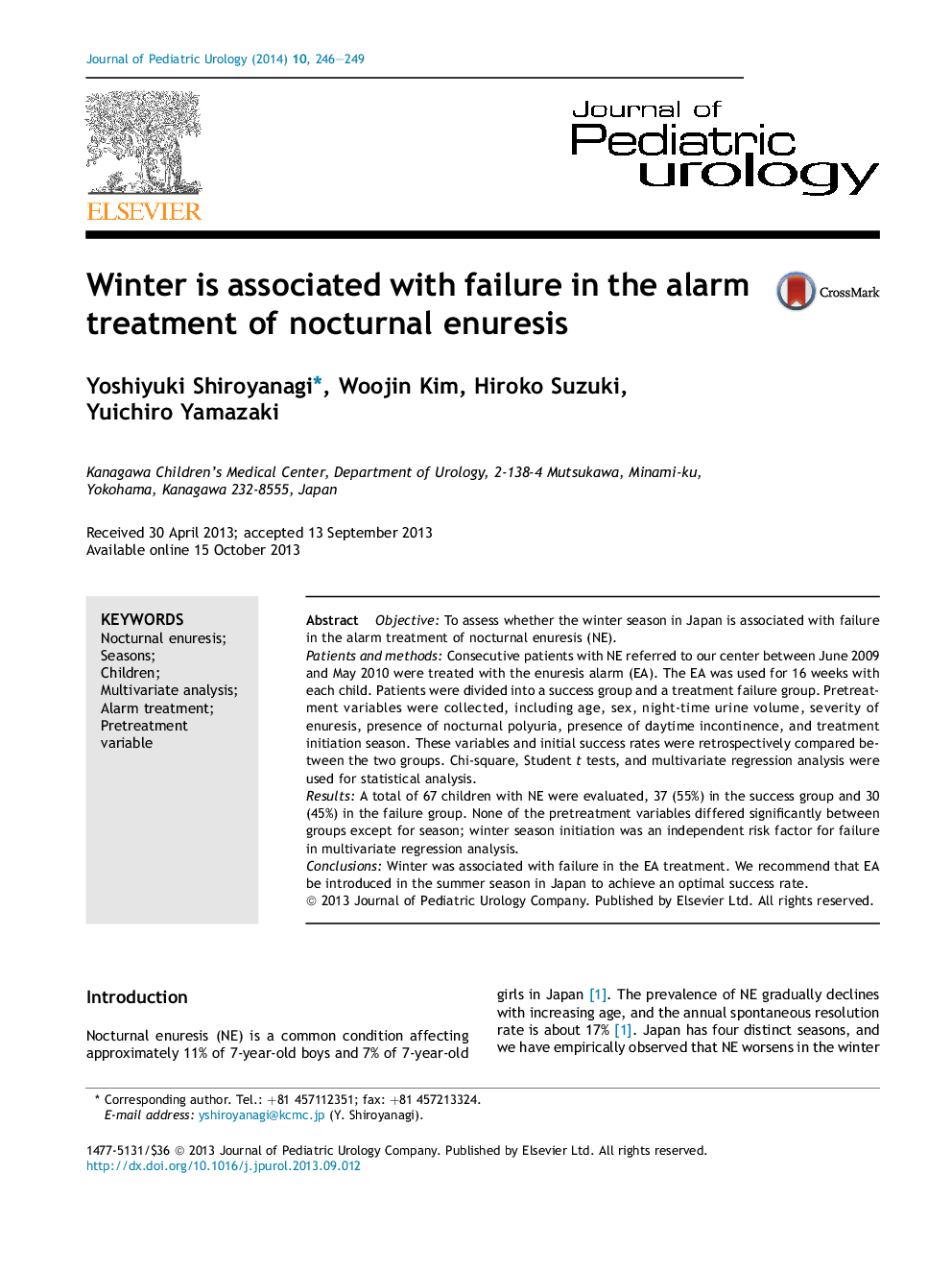| Article ID | Journal | Published Year | Pages | File Type |
|---|---|---|---|---|
| 4162749 | Journal of Pediatric Urology | 2014 | 4 Pages |
ObjectiveTo assess whether the winter season in Japan is associated with failure in the alarm treatment of nocturnal enuresis (NE).Patients and methodsConsecutive patients with NE referred to our center between June 2009 and May 2010 were treated with the enuresis alarm (EA). The EA was used for 16 weeks with each child. Patients were divided into a success group and a treatment failure group. Pretreatment variables were collected, including age, sex, night-time urine volume, severity of enuresis, presence of nocturnal polyuria, presence of daytime incontinence, and treatment initiation season. These variables and initial success rates were retrospectively compared between the two groups. Chi-square, Student t tests, and multivariate regression analysis were used for statistical analysis.ResultsA total of 67 children with NE were evaluated, 37 (55%) in the success group and 30 (45%) in the failure group. None of the pretreatment variables differed significantly between groups except for season; winter season initiation was an independent risk factor for failure in multivariate regression analysis.ConclusionsWinter was associated with failure in the EA treatment. We recommend that EA be introduced in the summer season in Japan to achieve an optimal success rate.
